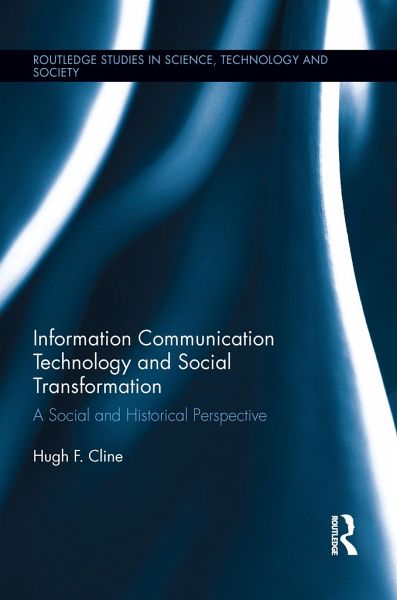
Information Communication Technology and Social Transformation
A Social and Historical Perspective
Versandkostenfrei!
Versandfertig in 1-2 Wochen
42,99 €
inkl. MwSt.
Weitere Ausgaben:

PAYBACK Punkte
21 °P sammeln!
This book argues that information communication technologies are not creating new forms of social structure, but rather altering long-standing institutions and amplifying existing trends of social change that have their origins in ancient times. Using a comparative historical perspective, it analyzes the applications of information communication technologies in relation to changes in norms and values, education institutions, the socialization of children, new forms of deviant and criminal behaviors, enhanced participation in religious activities, patterns of knowledge creation and use, the exp...
This book argues that information communication technologies are not creating new forms of social structure, but rather altering long-standing institutions and amplifying existing trends of social change that have their origins in ancient times. Using a comparative historical perspective, it analyzes the applications of information communication technologies in relation to changes in norms and values, education institutions, the socialization of children, new forms of deviant and criminal behaviors, enhanced participation in religious activities, patterns of knowledge creation and use, the expansion of consumerism, and changing experiences of distance and time.














